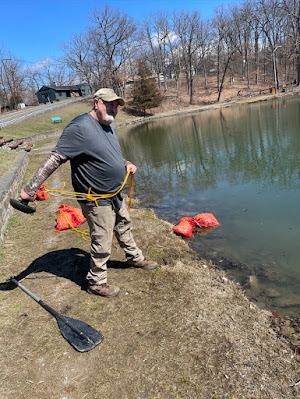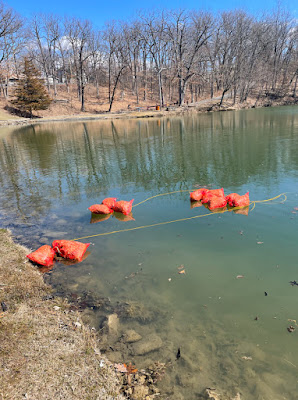Last year, Friends of Oakdale Lake presented the findings of a two-year water quality assessment project that had been carried out by the ecological consulting firm Great Ecology. The report, which can be found here, identified phosphorus, which is contributing to the growth of unwanted vegetation in the lake, as a major problem for water quality and recommended three short-term actions, to be implemented within the next year. Two of those actions--harvesting submerged vegetation and air diffuser aeration--have already been carried out. The implementation of the third--barley straw application--began today.
The barley straw is packed into red plastic onion bags, which will be collected and reused. The bags are then suspended by durable rope and held in position with mushroom anchors. Friends of Oakdale Lake wants the public to understand that the bags are not garbage. They are a planned and agreed-upon ecological intervention. The expectation is that, over the course of several months, the barley straw will inhibit the growth of algae in the lake. If the project is successful, it offers a chemical-free, low-cost way to decrease unwanted vegetation in the lake without interfering with summertime recreation.
COPYRIGHT 2023 CAROLE OSTERINK



One thing that could be done would be to reduce the fertilizers, herbicides, pesticides and who knows what else draining into the lake. Why not ban or restrict the use of lawn and garden fertilizers and chemicals in the properties that run off into the lake? It is also healthier and more pleasant to have a yard with diverse species of plants than a monoculture grass lawn.
ReplyDelete